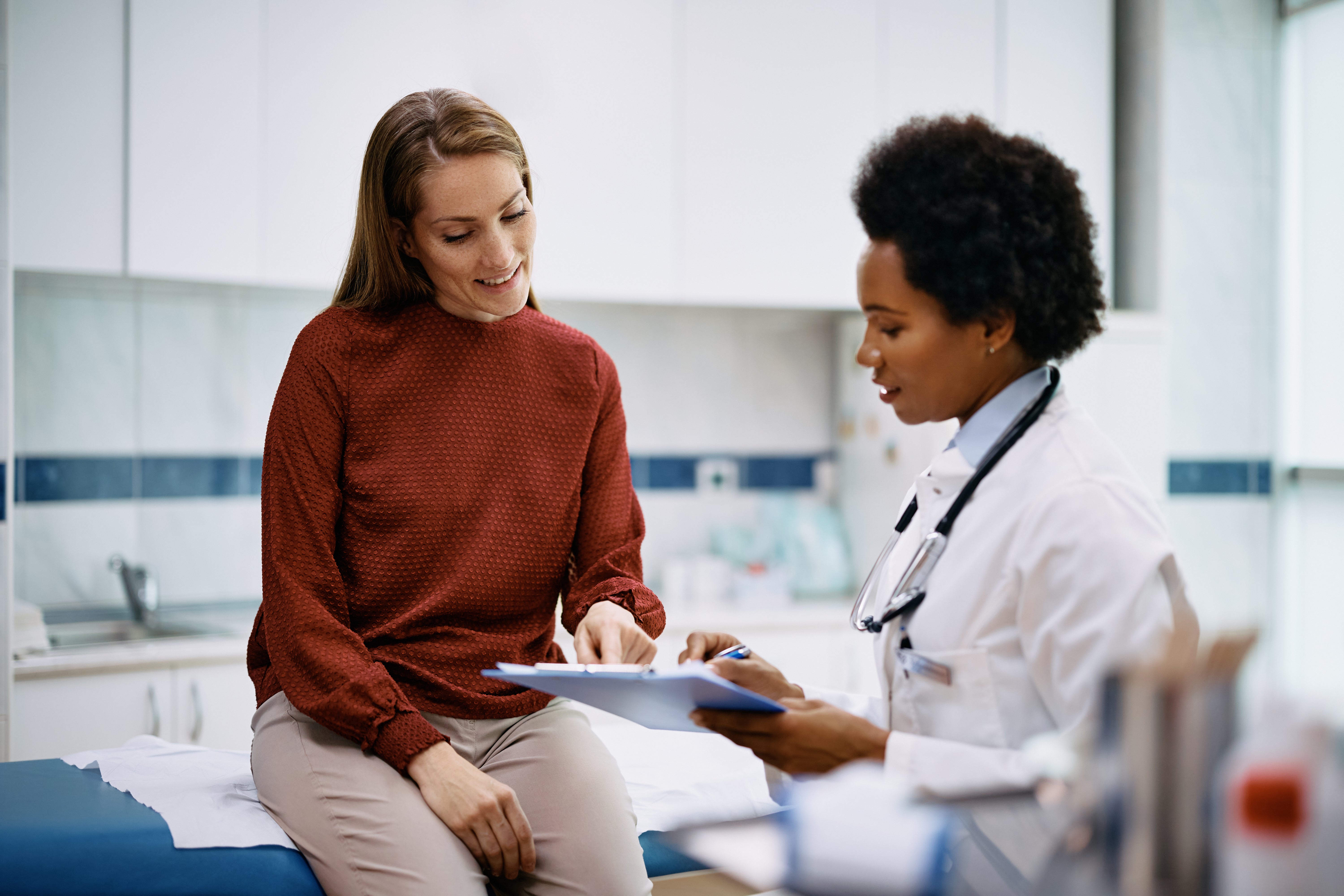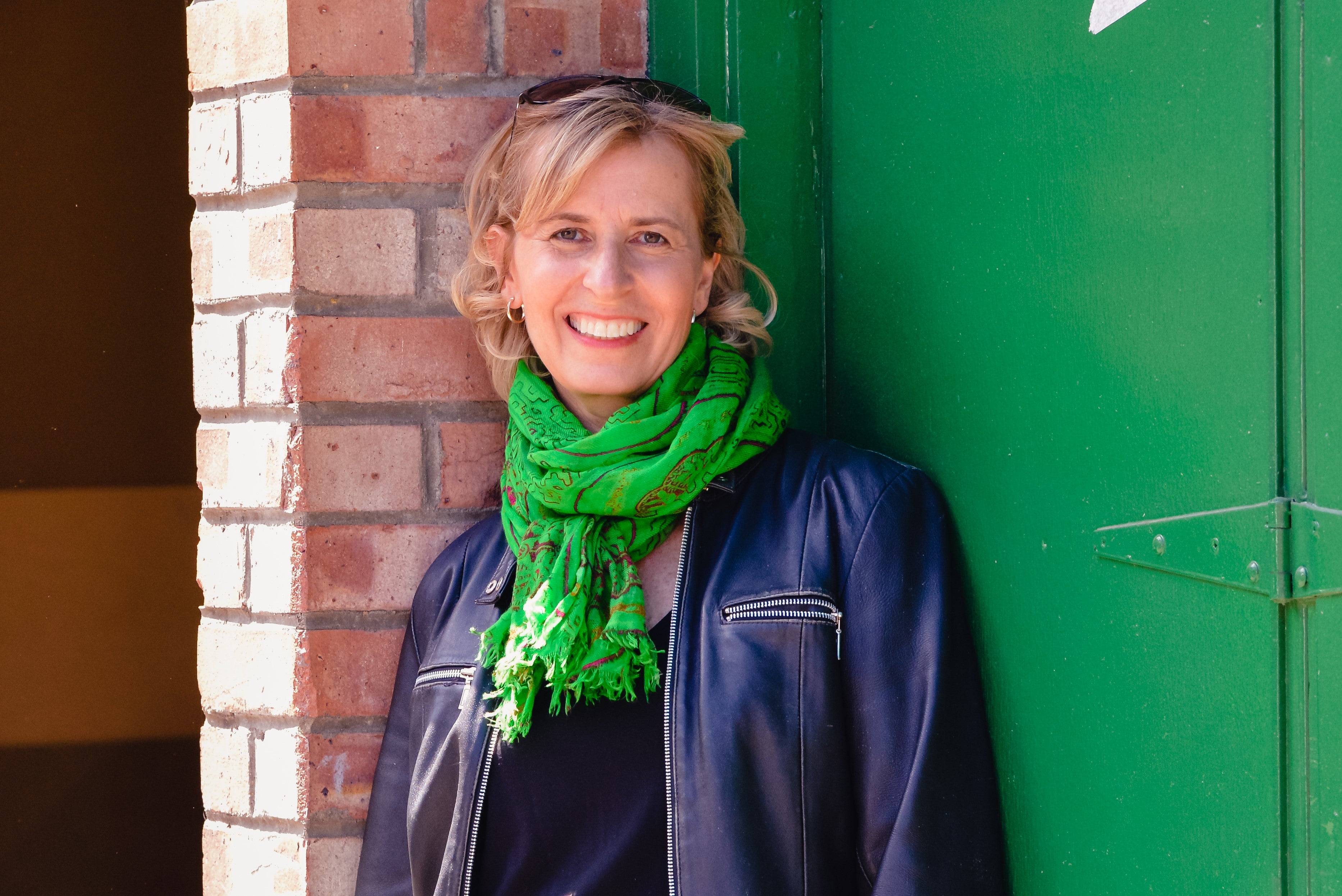Don’t suffer in silence. Treatment can help if periods or menopause symptoms affect your daily life

“I'd had very painful, very heavy periods for a number of years and when I was about 20 my GP said, ‘let's get you checked out’,” says Shazia.
The 40-year-old, who lives in Hertfordshire, was sent to be tested for what her GP believed was polycystic ovary syndrome – however the scan ruled this out.
“It wasn't until I was 25 when I went back to the GP and said ‘look, something is really not right’ that I had some more tests done, and I had a year's worth of ‘let's try this pill, let's try that pill’,” she says.
Shazia was subsequently diagnosed with endometriosis and has undergone three surgical procedures to treat the condition.
“I ended up with a great female GP who was well-versed in understanding endometriosis. One of the things I loved about her was whenever I'd go in after that first surgery, she was really good at going, ‘if you are concerned, you know your body better than anyone so why don't we investigate?’ I'm really fortunate.”

Shazia’s advice to other women in a similar position is to ask for help when you feel you need it: “Always say, ‘I know my body well, these are the things that I'm experiencing, I suspect it is endometriosis.’”
Endometriosis is a condition where tissue similar to the lining of the womb grows in other places, such as the ovaries and fallopian tubes.
It can affect women of any age, including teenagers, and can have a significant impact on your life and may sometimes lead to depression.
Some women are badly affected, while others might not have any noticeable symptoms.
Contact your GP practice if you have:
- Pain in your lower tummy or back (pelvic pain) – usually worse during your period [priority symptom as could also be a signal for other – possibly more complex conditions]
- Period pain that stops you doing your normal activities
- Pain during or after sex
- Pain when peeing or pooing during your period
- Feeling sick, constipation, diarrhoea, or blood in your pee or poo during your period
- Difficulty getting pregnant
- You may also have heavy periods. You might use lots of pads or tampons, or you may bleed through to your clothes.
Karen, 56, from London, started to experience brain fog, heart palpitations and insomnia – but she wasn’t aware the symptoms pointed to early menopause.
“Menopause symptoms creep up on you and they can get muddled in with whatever’s going on in your life at the time,” she says.
“I had my second child at 38 and it was hard to untangle what was being exhausted from small kids and what was actually menopause.
“The first real symptom was insomnia, but when my daughter started sleeping it didn’t go away. Then came the mood changes, irritability and heart palpitations, which I now know are down to hormonal changes.
“At the time, I was working in a publishing company and I’d be stressed out and overwhelmed by deadlines. Because I had the Mirena coil for birth control, I wasn’t having periods so I didn’t see any change there.”

She adds: “I didn’t get hot flushes until later, so it didn’t occur to me that brain fog and poor concentration were symptoms of an early menopause. At times, I felt like it was all in my head.
“When I was 43, I was having hot flushes and that’s when I was diagnosed as post-menopausal. The GP asked if I wanted to talk about HRT, but I went off and did everything under the sun to try and manage it myself. I tried herbal supplements, homeopathic remedies and acupuncture – they all helped a little, but I still didn’t feel right.
“But when I was 50 I went back to the GP practice. I took a list of my symptoms and I’d done my research on what was available, so I had an idea of what I wanted. She was really good and I came away with [HRT just like the hormones lost during the menopause]. It felt like the missing piece.
“Now I work as a health and wellness coach helping women understand menopause and what they need to do, including good sleep, nutrition and exercise.
“If you’re feeling these symptoms, don’t despair. It might take a lot of tweaks and patience, but seeing your GP and looking after your lifestyle you can feel well again. There’s light at the end of the tunnel.”
Period problems, gynaecological conditions and menopause symptoms are common and can significantly impact women and girls’ physical and mental health, and the ability to go about their daily life.
Don’t suffer in silence. Treatment can help if periods, menopause or gynaecological symptoms affect your daily life. Contact your GP practice or visit nhs.uk/womens-health
Bookmark popover
Removed from bookmarks